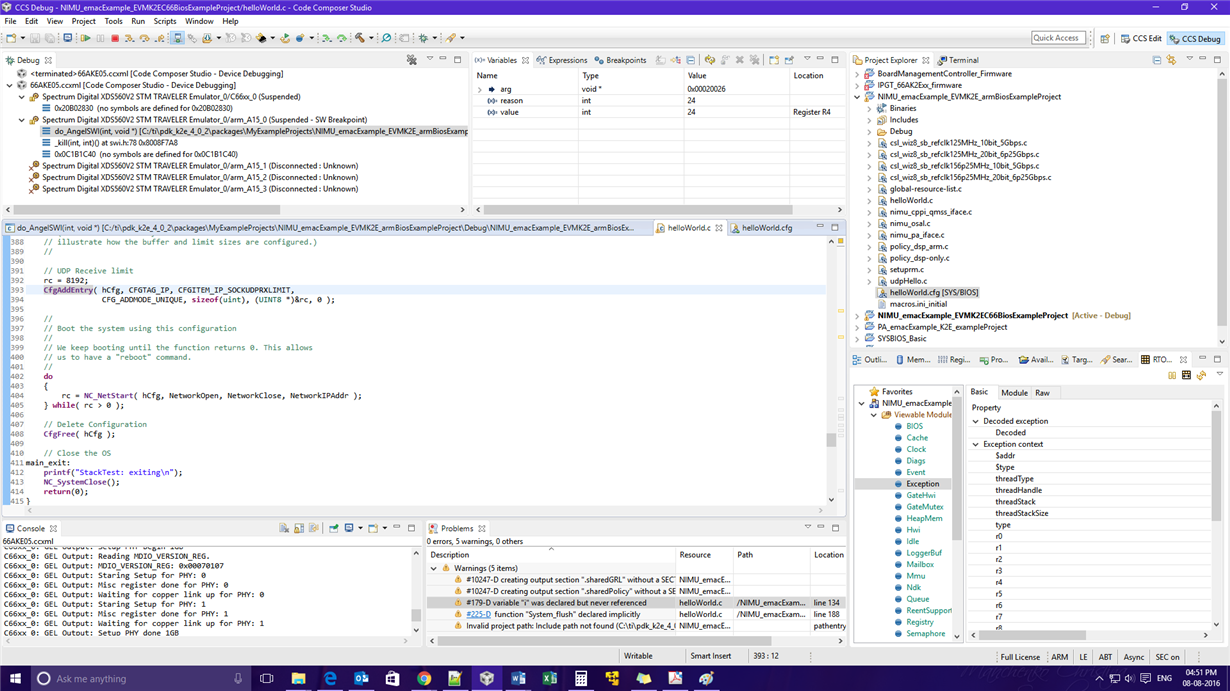Hi
When i try to test PDK example delivered for K2E "NIMU_emacExample_EVMK2E_armBiosExampleProject" , The project results in SYSBIOS exit if Ethernet link is connected. Since this is a out of the box solution for along with PDK for K2E, i can't able to find solution for this issue after a long time trials.
I was using K2EVM with 66AKe05 processor device for running the example code. Is it a n issue someone observed or any evm settings is required for running this project?
Kindly help me to resolve or make some comments on this issue as support is required to move forward.



